Blog Anniversary Author Interview + Giveaway: Mortal and Divine Laura Lascarso
Today’s interview is with new-to-me-this-year author Laura Lascarso, and it’s concentrated on the 2020 Mortal and Divine trilogy – only two books are out at this date. When I was despairing of finding a book with characters who would grab onto my very soul, offer me flawed and morally ambiguous, something contemporary yet fantasy/paranormal, something romantic and sublimely sexy, along came Book of Orlando. I could not have asked for anything more perfect. Then Bloodborn Prince was released and solidified my love of this trilogy and its characters. I’m officially and utterly addicted and happy to help other readers join me. I hope you enjoy the interview.
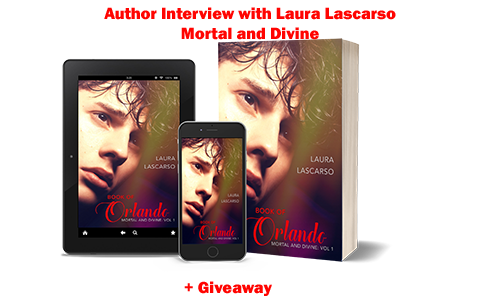
K: Because this series is very much about the meeting of the mundane and the transmundane, the series moniker of Mortal and Divine is apt, I’d really like to know how this series got started? What was the kernel that grew within you to write these MCs and the people in their orbit?
LL: Hmmm… I have a thing for stalker stories, that kind of distant, unrequited desire where the stalker is mostly benevolent (although I also like stories where they are not, too), and I started thinking about ways in which a love interest would be a legit stalker (but totally understandable), and I thought a disembodied reaper is probably one of those situations. And further, if a reaper was in a situation where they fell in love with a human, and it was not allowed by the higher-ups, it would make things even more dicey. And if the reaper didn’t have regular access to a body but really, really wanted to, why that’s just a tension smorgasbord.
I think that was the kernel that got me started on the mythos for the Mortal and Divine universe and everything sort of evolved from there.
K: Mmm, hmm. Who doesn’t love a good stalker, obsessed with/burn the world down for you only storyline? It’s perfect!
K: The first and the second books are set over a span of time from the end of the eighties until contemporary time as some people needed to age during the course of the first two books. The characters didn’t skip a beat with their seamless transition between Book of Orlando to Bloodborn Prince. It’s not easy to keep characters on point between books, and it isn’t just the MCs who have to stay the course. How hard is that to write, flowing arcs and characters from book to book to book?
LL: It’s really hard. Like, harder than I ever thought it would be. I honestly don’t know how fantasy writers do it. I’ve lamented to my writer friends many times that I will NEVER write another trilogy because you have to not only give each story its own unique story arc and character growth, but all of those stories have to feed the overarching narrative while allowing for the characters to grow and change without everything being super repetitive.
Because of the choices I made in Book of Orlando, I had to work pretty hard to sell readers on the second 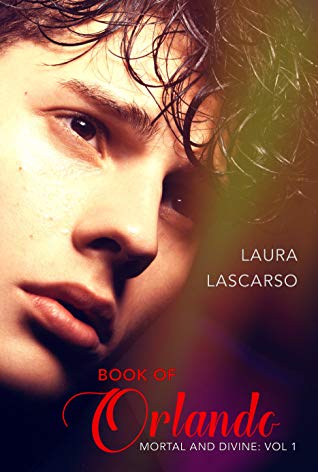 instalment, how to transition one character into a new iteration while still allowing Henri (and the reader) to grieve the loss of his former beloved. I don’t know if I was successful or not, but I’m really glad that it worked for you.
instalment, how to transition one character into a new iteration while still allowing Henri (and the reader) to grieve the loss of his former beloved. I don’t know if I was successful or not, but I’m really glad that it worked for you.
Now, I am in the throes of revising the third book, and having doubts about whether the ending will really satisfy readers and feel like the natural conclusion to this epic (epic in my mind at least) love story, but that is where really wonderful alpha and beta readers come in. They are not shy about telling me where I can make improvements (or when I’m totally screwing up). And my editor, Moony Eliver, gave me some really good advice early on by suggesting that I draft the entire trilogy before I published the first, which really helps in those moments of existential grief. I know I’ve got the mud already in the form of a first draft. Now I just have to sculpt it into something pretty.
K: And part 2 of the question is this, I feel the pacing of the storytelling of a trilogy is exceedingly important. You have three books you need to find the right ebb and flow to keep the reader engaged throughout. To start and build without being too slow, but you can’t run out of puff either. It’s also been my discovery that, inevitably, there will be a cliff-hanger ending to two books in a trilogy. That doesn’t always sit well with a few readers. How hard do you find the flow, the cadence, the build, the inevitable cliff-hanger concerns in writing a trilogy?
LL: As a reader, I HATE it when authors leave off on a cliff hanger (especially when the next one isn’t published – so mean!), so I am entirely sympathetic to those readers out there who wanted to throttle me at the end of the second book (and the first one for that matter). That said, the endings do, more or less, answer the question posed at the beginning: Can Henri protect Orlando from the forces conspiring against them? In that way, the first two can feel a little repetitive, but I hope there is enough world-building and plot to sustain readers.
One of the more challenging aspects of writing these books is balancing the romance and the supernatural. I felt like I needed a lot of time to build in the connection between the characters, and that’s hard to do while still keeping the plot moving. Ideally, you’d want the two interwoven seamlessly together in every scene, but that’s also really hard (for me at least.) Even now, in revising the third, I’m constantly asking myself if there is a good ratio of romance to plot and if the two are dependent on each other, which is the goal. Hopefully readers at both ends of the spectrum will get enough of what they are looking for.
K: I love to see strong women in my gay romance or MM reading, so let’s talk about Lena. I’ll start by saying, from a reader’s perspective, it’s easy to dismiss her as purely a narcissist. However, she may well be totally misunderstood, pffft, but her commitment to Parousia Sparkle Motion cannot be denied. How much fun, yeah, I’ll go with fun, is a character like Lena to write? And Lucian gives us a glimpse of who he is in Bloodborn Prince. He also has to be fun to write, right?
LL: Oh my god, yes! Side note, I love the movie Donnie Darko, and I’ve watched it at least a dozen times, but yes, Lena is indeed committed to Parousia Sparkle Motion, just like that dance instructor in DD, and isn’t there something admirable about a person who commits themselves to a goal NO MATTER WHAT? I think part of Lena’s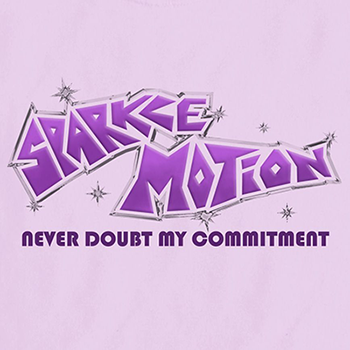 character (and probably a lot of the divine characters) is that they’ve just lived for so damn long. In comparison, humans are like flies in terms of their lifespans, so there is a real sense of superiority that creeps in. And a sense of propriety in knowing what’s best for everyone involved. We see that in Henri as well. He simply knows what’s best for Orlando and imposes his will without actually asking for O’s opinion or input. That’s his biggest character flaw, in my opinion.
character (and probably a lot of the divine characters) is that they’ve just lived for so damn long. In comparison, humans are like flies in terms of their lifespans, so there is a real sense of superiority that creeps in. And a sense of propriety in knowing what’s best for everyone involved. We see that in Henri as well. He simply knows what’s best for Orlando and imposes his will without actually asking for O’s opinion or input. That’s his biggest character flaw, in my opinion.
Lena is that way on steroids, and she applies that feeling of superiority to her sons as well. She’s been around the block a few times, and from her perspective, if these sons of hers would just get in line, surely they could rule the world. So, yeah, a lot of mommy issues there to unpack.
Lucian is my guilty pleasure and has been by far the most fun to write. He just *sparkles* on the page.
K: That sense of ennui of living for such a long time could make you inclined to play chess with mere mortals.
Are there people out there who don’t love Donnie Darko? I don’t know what that must feel like 😀
I have a lot of time for people who just know what they want and go for it – hi, Lena. I don’t have to like it or agree with it, but I can respect the dynamism behind it. Lucian, I would read more about in a heartbeat.
K: One of my favourite fictional characters is Henri. He has so much power, yet he doesn’t always believe this. He can also feel like he’s a monster, but he’ll use that “monster” to aid and protect his all-consuming love. Henri is also endearing, while incredibly dynamic on page. How hard is it to pull off ‘endearing’ when someone has such a strong presence and moral ambiguity stamped over their very being? A non-corporeal lover, what was the inspiration to make that happen in Book of Orlando? Because it worked.
LL: I think, strangely or not, a lot of Henri’s character probably comes from my role in real life as a parent, and especially right now, as a parent of teenagers. Parenting is full of being forced to make tough decisions for your family and children’s well-being and there are a ton of ways to fuck it (and them) up. When my first child was a newborn, the sense of responsibility was terrifying. They are just so weak and helpless, and they need you for everything, and the slightest screw-up and they’re dead. I mean, I might be exaggerating, but that was how it felt to me at the tender age of 22. And as they grow, they get a little less fragile physically, but then there are their psyches you have to worry about. Not to mention an almost god-like power in your household to dictate their lives. It’s kind of insane having that much influence over another human being, and there is this constant tension between wanting to protect them and needing to stand back and let them make their own mistakes and (hopefully) learn from it. So, I think I funnelled all of that parental angst into Henri’s character. I’m glad that you found him endearing. He is a bit of a mama bear.
K: I don’t want to give anything away for those who haven’t read this series yet, but the effort to have Henri’s love be different but same, how hard was that to write?!
LL: Ugh, so hard. This is another place where Moony really helped me out. In the first draft of Bloodborn Prince, 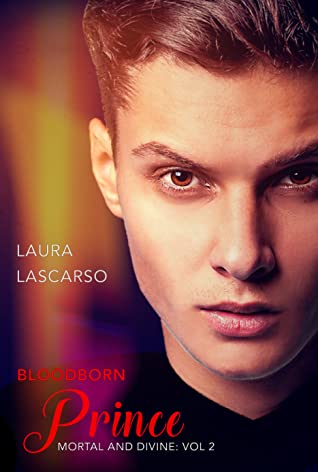 she was like, “Why should I like him?” in regards to Orlando 2.0 as we called him. It kind of gutted me, but it also forced me to make some really hard choices (and improvements), which I think really served the story in the end. Then I also had to figure out the logistics of what role Henri would play in this second iteration of their romance, and how to make him deeply invested but not overly creepy. I tried to take each decision point from the perspective of what Henri would realistically do in any given situation and that helped.
she was like, “Why should I like him?” in regards to Orlando 2.0 as we called him. It kind of gutted me, but it also forced me to make some really hard choices (and improvements), which I think really served the story in the end. Then I also had to figure out the logistics of what role Henri would play in this second iteration of their romance, and how to make him deeply invested but not overly creepy. I tried to take each decision point from the perspective of what Henri would realistically do in any given situation and that helped.
I also wanted Orlando’s character to evolve in the second book, in obvious and not-so-obvious ways. I wanted him to really terrify Henri in certain aspects and use his burgeoning powers to create a better balance between them. I think one of the most satisfying aspects in writing the third book is seeing that character really come into their own.
K: The world building is subtle but alive in these books. The mostly contemporary Miami setting juxtaposed against heavenly and demonic beings of significant age. Most humans blissfully unaware of the things they often crave being around them, angels, sometimes demons – hello, Ouija boards – doesn’t escape me. I have a love of beings of mythology or spiritual beings being utilised in romance, especially gay romance. There’s something satisfying in that. Oh, and why Miami? I guess you could say, why not Miami? Also, how much research did you put into the different beings and how much did you enjoy this aspect of your writing in Book of Orlando and Bloodborn Prince?
LL: Well, firstly, I am not super well-travelled. I’ve lived in Florida my whole life and when we travel, it’s typically to visit family (also in Florida), so that somewhat limits my scope because I generally like to write about places I know well. However, in thinking about death and places where someone like Henri, a reaper, would be having a really hard time, Miami in the 80’s seemed like a natural location. There is also the Miami City Ballet connection, and when you talk about income disparity, Miami is one of the starkest examples of poverty vs. privilege. Additionally, Miami is a relatively “young” and transient city. It experienced exponential population growth in the eighties, currently has one of the largest international communities in the U.S., as well as one of the biggest ports. With those structural factors, along with its cultural worship of money, beauty, and youth, it seemed like an ideal location for a contemporary god’s playground.
With regard to the mythos, I did a bit of research into demon/angel-ology, and I leaned heavily on the excluded-from-the-Bible-for-obvious-reasons Book of Enoch (fascinating) to form the foundation of the Grigori and Nephilim roots. I’ve studied a lot of religions (some more extensively than others), and I’ve always been struck by the similarities between them, or the slight differences that have common roots, for instance the way Judeo-Christianity absorbed and transformed paganism into a monotheist religion in a relatively short span of time because it was politically convenient to do so. That is where I derived the idea of the concentration of power in the Order of Angels. You see it in politics and government too, where a few individuals wield the majority of power and everyone else just falls in line (probably true of most institutions/power structures). If there was a thesis to this trilogy, it would most likely be “power corrupts,” on both the macro and micro levels.
Henri’s backstory is a direct retelling of Arminius, the son of a Germanic chieftain, raised in Rome and drafted into the Roman Army who goes on to wreck bloody havoc on the Roman Empire. I mean, I honestly couldn’t make up a better revenge story than that. (Thank you, Wikipedia.)
Another thing I kept stumbling across in my explorations was blood—in sacrifice, in ritual, in gods’ appetites. The element of Henri’s bloodborn roots was actually one of the most organic bits of worldbuilding (and one of the most attractive to me, since I am a “sucker” for a good vampire story.)
K: No pressure, but book #3 has to be a huge undertaking from your perspective. I suspect the third instalment is going to be rather epic and mind-blowing. On a scale of 1 – 10, how’s the overwhelm factor right now, Laura? Or maybe I’m projecting, because I don’t write? And when is it (approximately) due out?
LL: Are you trying to psych me out right now, Karen? LOL. I wish I could tell you or even accurately rate it, but I honestly never know how readers will react to anything I put out there. I’d probably make a lot more money if I did. What I will say, is that I think the world-building is strong in this one, that the relationship between Henri and his beloved evolves in what I believe is a good way, and that these two will have their happily ever after, even if there are sacrifices that must be made along the way. Is that enough??? Also, Parousia’s pub date is set for Feb 7, 2021, exactly one year after Book of Orlando came out, which I think deserves a pat on the back.
K: Are there any books on the near or far horizon for Laura Lascarso that readers can look forward to? If so, please spill?
LL: I’ve been playing with some novellas during quarantine, shorter stories that won’t take my focus away from Parousia too much. And I might like to write another one or two in my Midsummer series. There is also the possibility for another book/novella set in the Mortal and Divine universe following a different set of characters, but I’m not making any promises in that regard. I’d also like to get back to writing Seth’s story, (readers of Hiroku and/or The Bravest Thing will know who I’m talking about), but he is proving to be a hard nut to crack. Other than that, I am making regular offerings to the muse and hoping she blesses me with divine inspiration.
Thank you to Laura Lascarso for joining in the celebrations of On Top Down Under’s 8th blog anniversary. This was a nice interview to put together. So much so, I had to stop responding to answers Laura Lascarso gave me as it became more philosophical and book club-esque rather than interview. I hope my fellow readers enjoyed it.
**GIVEAWAY**
This giveaway is now over, congratulations to all the individual winners.
The giveaway for this author interview is 10 x e-books copies of Book of Orlando to 10 different entries. I think you can tell that I love this book. I also love Bloodborn Prince, (M&D #2) and am looking forward to Parousia (M&D ##). Enter the giveaway and start your journey with the Mortal and Divine trilogy via Rafflecopter giveaway or, if you have some thoughts you would like to share, please do so in the comments section below. This giveaway closes 10 days from date of original post. Good luck!
Author Bio:
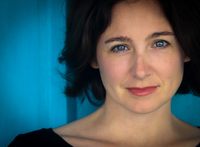 Laura Lascarso wants you to stay up way past your bedtime reading her stories. She aims to inspire more questions than answers in her fiction and believes in the power of storytelling to heal and transform a society.
Laura Lascarso wants you to stay up way past your bedtime reading her stories. She aims to inspire more questions than answers in her fiction and believes in the power of storytelling to heal and transform a society.
When not writing, Laura can be found screaming “finish” on the soccer fields, rewatching Avatar: The Last Airbender, and trying to convince politicians to act on climate change. She lives in North Florida with her darling husband and two kids. She loves hearing from readers, and she’d be delighted to hear from you.
Sign up for her newsletter at www.lauralascarso.com
Say hi to Laura:
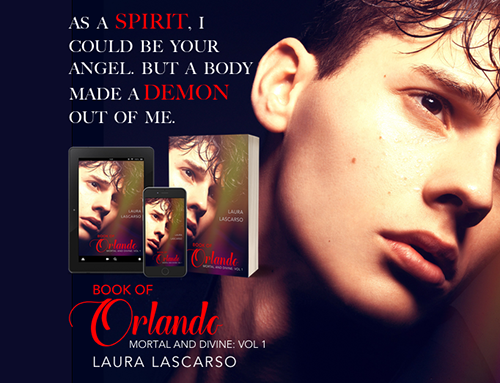
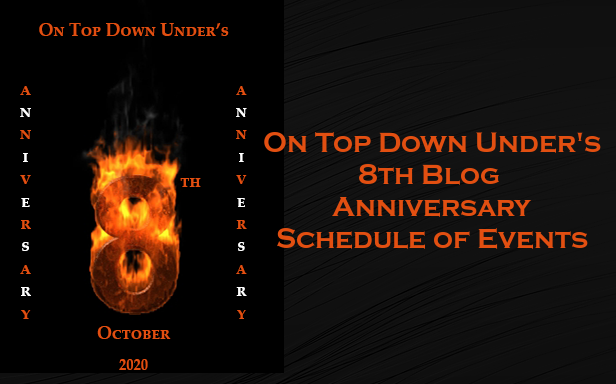
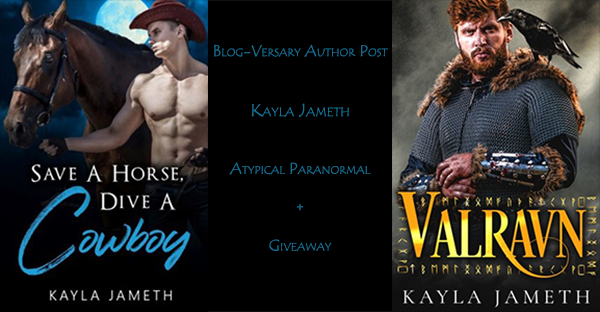
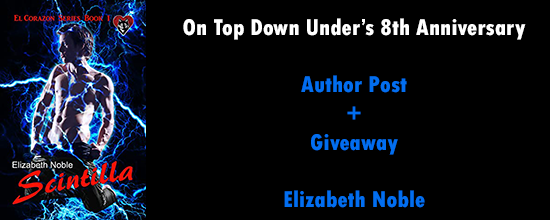
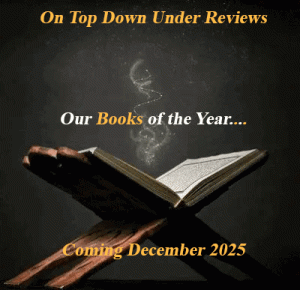
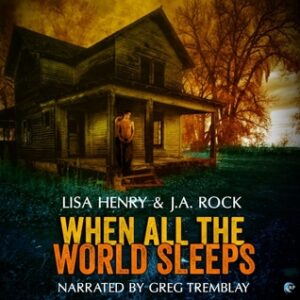
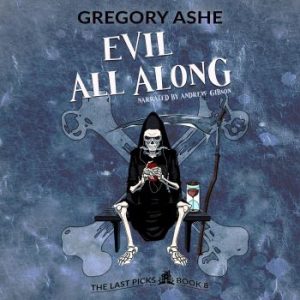

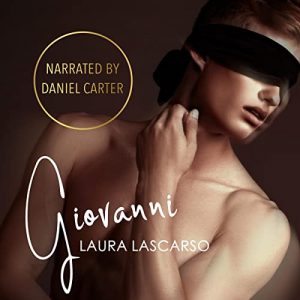
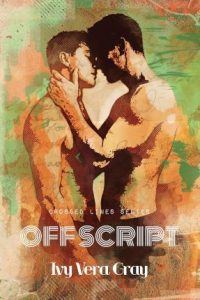
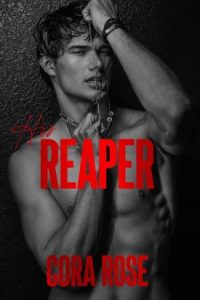
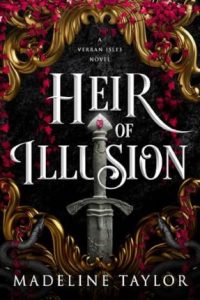
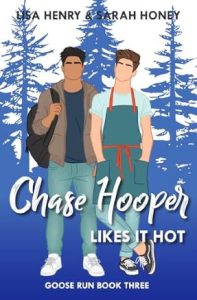
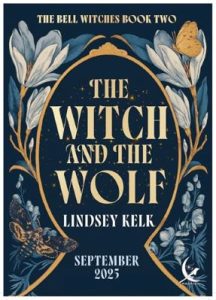
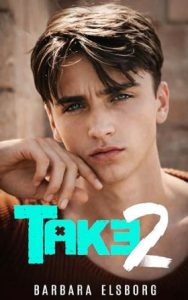
What a fantastic interview. I always love reading what goes into writing the characters and the research behind them and their fictional worlds. I know how much Karen has enjoyed this series so far. I’ve been so eager to start on Book of Orlando.
Thank you to Laura Lascarso for helping us celebrate our 8th year and for the great giveaway!
It was such fun to put together and Laura Lascarso gave great answers.
Definitely a big thank you to Laura for joining us for our blog anniversary 🙂
I know Kazza wrapped Book of Orlando, and this interview tantalises on top of a bunch of other reviews saying this is a must read. It seems the maxim write what you know is forever a truth. Miami in the 80s and 90s was hit during the AIDS epidemic, had, still has, poverty rubbing elbows with vibrancy and massive cultural diversity and nothing much slows it down. If you’re talking causality for remarkable light and shade in people and and their beliefs and efforts you hit a setting jackpot.
I drop in most of the time to On Top Down Under and some other LGBTQIA+ blogs but I pop in more during anniversary. I get to hear about writers and writing and books I’ve missed. It’s like there’s more books than ever before to choose from. Thanks for keeping us posted.
Thanks for the post & giveaway. It sounds good.
Thank you for the interview. I so hate cliffhangers as well… that’s why when I know there is a cliffhanger, I wait until all the books in the series are out… Having to wait makes me really upset!
Count me in! I’ve got some long reading periods due and I’d like to give Orlando the biggest up and down. 😉
I can deal with cliffies if the wait isn’t long but years can pass when the next book comes and sometimes they never come at all. 🙁 Donnie Darko is a classic. Thanx for the details behind the books.
This giveaway is not over. Congratulations to the 10 winners.